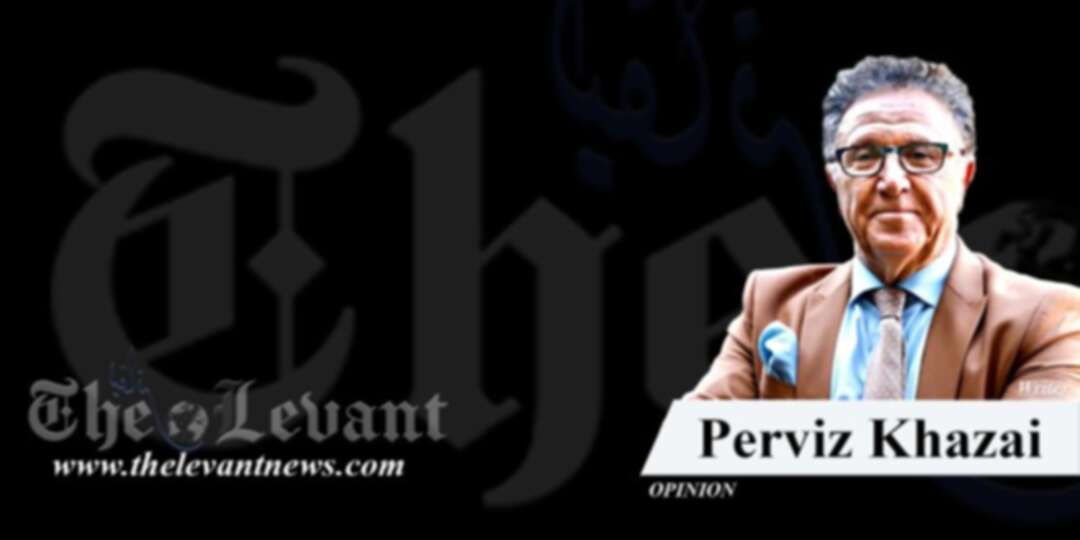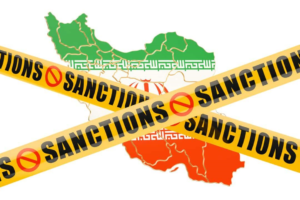-
Removing Iran sanctions with unprincipled views

The Iranian regime with its seven Presidents and two supreme leaders. has had many ups and downs over the past 41 years in regulating its relations with the United States. Iran
Throughout these years, Tehran by secretly negotiating, begging help from appeasers and exerting, pressure with its terrorist acts used all the tools at its disposal combined with lies and secrecy to create opportunities for its influence in expanding the regime’s proxy forces in the region and enhancing the IRGC's capacity for internal repression and export of terrorism. Of course, to a great extent was successful. Tehran has also tried to continue enriching uranium at every opportunity and violating its obligations in order to get closer to build a nuclear bomb. With creating a dozen fictitious crises IRGC tried to maintain its mercenary bases in Syria and Iraq.

The withdrawal of Syrian forces from Lebanon after the assassination of Rafiq al-Hariri gave Iran the opportunity to become the first actor in Lebanon's political scene and eventually led to the creation of a Hezbollah terrorist group. In Yemen, in the vacuum of the Arab Spring, Mullah’s regime seized the opportunity to employ the Houthis to dominate the Yemeni capital and its military capability.
An ancient Iranian expression states that when the garden wall collapses, the fruit-pickers (opportunists) arrive. The fruit-pickers, in this case, were the western appeasers that underpinned such achievements for the mullahs.
Iran had an unprecedented opportunity under Barack Obama. It reached a "nuclear" deal with six countries and the US, after which Qassim Suleimani succeeded in expanding its broader regional offensive, and it later became clear that the implementation of the deal empowered Iran with financial resources for its regional offensives. Suleimani and IRGC’s offensives just before sanctions being imposed on them, in its peak, facilitated the annexation of four Arab capitals under Iranian control. The extent of this is obvious that an analyst of Iraq's said: “No issue would be resolved until Qassim Suleimani came to Baghdad”. The most disastrous effect of IRGC+ financial resources was the killing of more than 100,000 and displacement of 6,000,000 Syrians.
Today, Tehran sees a good opportunity to use Coronavirus crises as a pretext to remove the deadly sanctions rope from its neck. Khamenei and Rouhani are now contemplating nothing but using the Coronavirus crises and pressure the international community and force governments to put pressure on the US to lift Iran's sanctions. In line with this game plan, Zarif and Rouhani played innocent and wrote in a letter to the American people that "sanctions have reduced the ability of the Iranian people to fight the virus and even some of our compatriots have lost their lives because of these sanctions." They have called on the American people to "loudly shout" at their government.
But Tehran does not say why Khamenei ordered the censorship of news of the Coronavirus outbreak in Qom for the sake of elections and did not quarantine Qom despite warnings from its Ministry of Health. Khamenei is portraying his regime as a victim of an American-engineered conspiracy, and on the one hand to send its Basij and Revolutionary Guards to the streets under the pretext of an anti-biological warfare maneuver to prevent insurgency and uprising against its rule. On the other hand, he could play the victim role and seize the opportunity to lift the sanctions. Therefore, we can not compare the regime’s reactions to Coronavirus crises with other countries and expect the same.
The Iranian people know very well in their contemporary history that Mirza Ali Asghar Khan Atabak, an opportunist when he saw Nasser al-Din Shah assassinated in Abdul Azim shrine, window dressed his corpse in the carriage and carried to the royal palace to show that the king was still alive. And now to those who want to lift sanctions on Iran, why do you want to show this dying regime alive?
We must ask them why Iran is not willing to accept Doctors without borders, international observers, journalists, missions and international aid to reach the needy people or Iran immediately! Why People's Medical Facilities that belong to the People of Iran should show up in Lebanon and Iraq in the hand of the regime’s proxy forces! Why the Regime Doesn't Release Political Prisoners?! Why Khamenei does not use the Imam's executive headquarters $100 billion currency reserves for the Coronavirus expense?!
And why regime’s television, instead of pointing to the inefficiencies of the relevant organs, is constantly zooming in on people's behavior, blaming the people in the city and condemning their behavior who don't stay home while simultaneously weaving conspiracy theories internationally. Why the regime is planning military maneuvers and mobilization by IRGC? Can Coronavirus be restrained by military maneuvers?
Therefore, lifting the sanctions of the Iranian regime means giving the regime another chance to unleash its terrorist activities and further destabilize the region.
Perviz S. Khazai: is a law graduate and former Apprentice diplomat in French Ministry of Foreign Affairs- in IIAP(ENA)Paris, in United Nations in Geneva- In Red Cross International- In Council of Europe in Strasbourg and International Court of Justice in The Hague 1969-1971. He served as an international law expert of foreign affairs in Tehran 1976-1979. He served as the head of the mission and acting ambassador in Norway and Sweden in 1979-1982. levant
You May Also Like
Popular Posts
Caricature
BENEFIT Sponsors BuildHer...
- April 23, 2025
BENEFIT, the Kingdom’s innovator and leading company in Fintech and electronic financial transactions service, has sponsored the BuildHer CityHack 2025 Hackathon, a two-day event spearheaded by the College of Engineering and Technology at the Royal University for Women (RUW).
Aimed at secondary school students, the event brought together a distinguished group of academic professionals and technology experts to mentor and inspire young participants.
More than 100 high school students from across the Kingdom of Bahrain took part in the hackathon, which featured an intensive programme of training workshops and hands-on sessions. These activities were tailored to enhance participants’ critical thinking, collaborative problem-solving, and team-building capabilities, while also encouraging the development of practical and sustainable solutions to contemporary challenges using modern technological tools.
BENEFIT’s Chief Executive Mr. Abdulwahed AlJanahi, commented: “Our support for this educational hackathon reflects our long-term strategic vision to nurture the talents of emerging national youth and empower the next generation of accomplished female leaders in technology. By fostering creativity and innovation, we aim to contribute meaningfully to Bahrain’s comprehensive development goals and align with the aspirations outlined in the Kingdom’s Vision 2030—an ambition in which BENEFIT plays a central role.”
Professor Riyadh Yousif Hamzah, President of the Royal University for Women, commented: “This initiative reflects our commitment to advancing women in STEM fields. We're cultivating a generation of creative, solution-driven female leaders who will drive national development. Our partnership with BENEFIT exemplifies the powerful synergy between academia and private sector in supporting educational innovation.”
Hanan Abdulla Hasan, Senior Manager, PR & Communication at BENEFIT, said: “We are honoured to collaborate with RUW in supporting this remarkable technology-focused event. It highlights our commitment to social responsibility, and our ongoing efforts to enhance the digital and innovation capabilities of young Bahraini women and foster their ability to harness technological tools in the service of a smarter, more sustainable future.”
For his part, Dr. Humam ElAgha, Acting Dean of the College of Engineering and Technology at the University, said: “BuildHer CityHack 2025 embodies our hands-on approach to education. By tackling real-world problems through creative thinking and sustainable solutions, we're preparing women to thrive in the knowledge economy – a cornerstone of the University's vision.”
opinion
Report
ads
Newsletter
Subscribe to our mailing list to get the new updates!



















